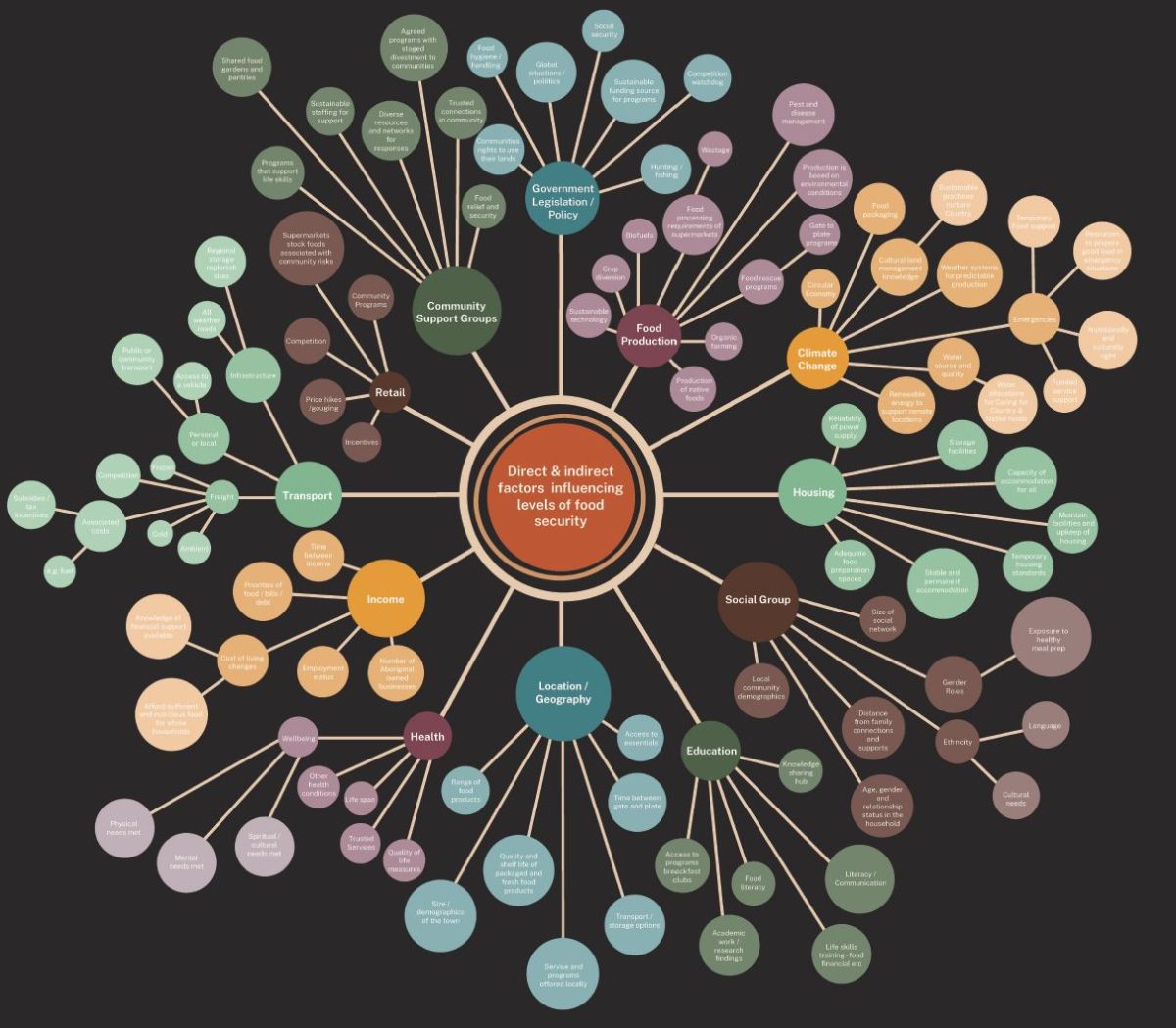Together with cross sector stakeholders and departments within NSW, Food Fairness Illawarra representatives (Rosi, Maree & Berbel) attended a two-day Food Equity Symposium organised by the Department of Aboriginal Affairs in early September. It was a great opportunity to meet, talk to, and hear from people who work hard to tackle the very challenging issue of food insecurity.
The aim of the event was to drive deeper conversations, remove silos and create connections to work collectively to address the critical issue of food inequity in our society.
‘Food security’ becomes ‘food inequity’ in the absence of a coordinated response
Therefore, rethinking the term food security and looking through a food equity lens allowed participants to take a holistic approach to tackling this issue. Food equity is when “all sectors are working together through frameworks and mechanisms that respect and deliver the human right to food for all people, at all times; it provides nutritional values that support positive physical, mental and cultural wellbeing, it restores and protects cultures, communities, local economies and is climate neutral to mitigate climate change.”

On the first day of the symposium, delegates were fortunate enough to hear from passionate and enthusiastic speakers, ranging from community members, community workers, food relief organisations, politicians, and prominent advocates. A common theme of the presentations was the need to make food charities obsolete and to act on the numerous recommendations to food insecurity already undertaken.
Day two’s workshops were developed to include discussions of people’s experiences, be evidence based, discuss ideas, opportunities and lessons learnt. The aim of the workshops was to brainstorm new approaches to food security to effect and influence change. The workshops highlighted the hurdles and/or supports effecting priorities; innovations and opportunities; how to share best practice; creating change partnerships and sharing accountability.
The breadth of presentations moved people, challenged their ideas/thoughts and there is great support for ’cross community-cross sector’ approaches.
What we can share with you:
Together, we can make the change!



